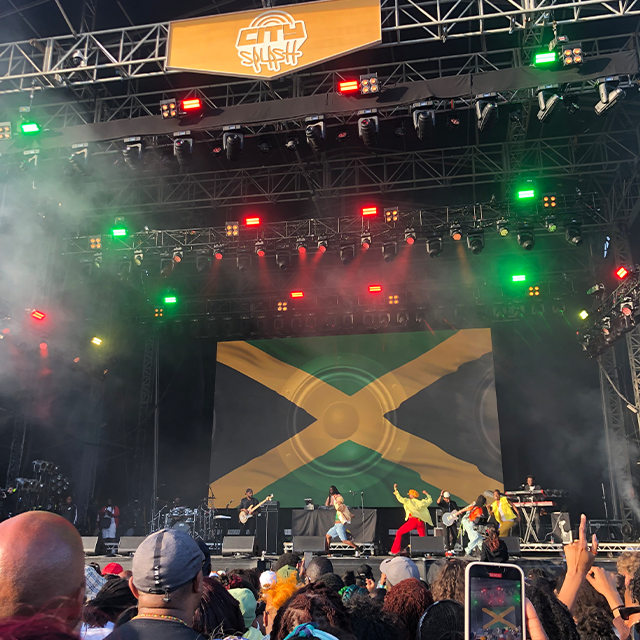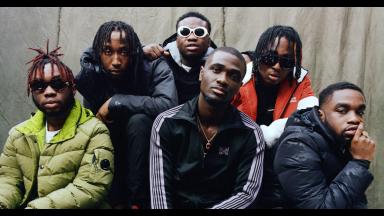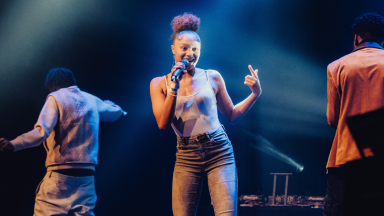Words by Youth Music NextGen writer Natalia Leoni | @_natalialeoni
Everybody haffi ask where mi get mi Clarks?
Through this song, Vybz Kartel made Clarks shoes synonymous with Jamaica. We all have that one song that should be our country's national anthem; everyone knows the lyrics and it's always good vibes. My connection to my heritage and culture was like that song, surface level for a long time. I knew the right lyrics and even the dance moves, but I was missing a deeper connection. Growing up, reggae anthems like “Night Nurse” and the smooth voice of Sanchez blasted through speakers at family functions. It was a blur of base vibrations, the intoxicating smell of rum, running around with my cousins and a blend of spices that felt like home. If you asked me then what it meant to be Jamaican, that was it.
As I reached secondary school, my understanding and relation to Jamaica and, in turn, my identity shifted. It didn’t seem as simple as that anymore. Stereotypes like being able to dutty wine and talking Patois exclusively, skewed my perception and made me feel like a Jafakian. It didn’t help that I spent less and less time with my Jamaican-born grandmother, and that my dad (a born and bred Jamaican) constantly referred to me and my siblings as “English youts” who knew nothing of real Jamaica. I was in truth embarrassed, and when asked: “Where are you from? No really where are you from?” always deflected to London first then the Caribbean. This is where I rejected those assumptions and was drawn more to my Black British identity because it seemed more tangible. This time in my life coincided with the rise of a new generation of artists in the UK, whose lyrics related to my experience being Black British. Thanks to early pioneers like SBTV and YouTubers like Denz and Renz, I was fully embracing UK music artists, from the likes of Dave to AJ Tracey and Digga D. Their lyrics were grounded in my reality and lived experience of South London, from Bagel King to Streatham, I felt proud of where I was from. The music and music culture contributed to building my confidence and grounding me in my identity as a Black British teen.
Despite not fully connecting with my heritage, I was curious about others, like my friend - the other Natalia’s - Colombian heritage. We went to Reggaeton club nights, practiced Spanish together and exchanged what we knew about our culture. I learned the lyrics of classics like “Piensas en Mi” by Nicky Jam and Bad Bunny anthems and learnt about the nuances of not only Colombian but Latino culture. Those moments of exploration and being welcomed and accepted into another culture made me more hopeful and receptive to reintroducing myself to that side of my culture.
I was a Londoner and proud, but as I approached my 18th birthday there was still this yearning to connect. That opportunity came, unfortunately in the form of a funeral for my maternal great-grandmother. Family from the UK, Canada and Florida gathered at our family home in Jamaica in January 2020. Looking back now, this was the defining moment for me and my identity. I was finally able to connect because I was physically there. I sat on the veranda and played dominoes, I went to York Town market and Hellshire beach and drank my grandad's homemade sorrel and chased after goats. I no longer had to rely on stories of a life ‘back home’ I never knew, I finally had the memories to embrace my heritage confidently.
Upon my return, I deep dived into all things Jamaican with a renewed sense of passion and certainty. I started watching Jamaican YouTubers like Quite Perry, reading fiction by Caribbean novelists and discovering the range of musical genres that come from the island besides Dancehall and Reggae. I was studying at university and lived with four student nurses who came from the African diaspora.
Though British and Italian-born, their strong connection to their roots inspired me on my journey. As various Spotify mixes blasted through the flat walls, we exchanged our love for our cultures through recipes, movies and language. I was building an identity I loved and felt authentically connected to.
My connection runs deeper than any trending songs or dance moves out of the island. From photography exhibitions, talks, social clubs and new restaurants, I have been going to any and everything that enables me to relearn and reconnect with my heritage. Looking back on how far I have come, I’m at the stage of enjoying different ways of shaping my identity and overcoming a sense of shame by sharing this with my friends and family.

I am witnessing a lot more scope for representing and reflecting cultures and a recognition of people like me from the diaspora trying to connect with home. Songs like “Young” by Stalk Ashley, and more soulful tunes like “Sometimes Love” by Sevana, broke from the international mould of what my island has been stereotyped as. Through music, I feel more comfortable because that representation feels wider. The availability of choice musically reflects that positive difference and is helping me embrace the nuances of my identity.
With the fusion of genres and wider collaboration between Jamaican and UK-based artists - e.g; “Personal” by Nia Smith featuring Popcaan - this creative exchange reflects the acceptance I have finally found in myself.
Read next...
Black History Month: The Evolution of Afrobeats and Its Impact on the Next Generation of Music
Youth Music NextGen writer Elizabeth Oyetunji explores the history of Afrobeats and the lasting impact the genre has had on contemporary music.
Decolonising the Music Curriculum
From jungle to grime, UK garage to Afroswing, Black British music has shaped the world. So why isn’t it in classrooms? Remi Fairweather Stride, Chair of our IDEA Working Group, calls for faster progress in decolonising the music curriculum.
Black History Month: Why We Need More Diversity in Music Journalism
Youth Music NextGen writer Amelia Fearon investigates the lack of diversity and equal opportunities in music journalism and the impact on the next generation.



